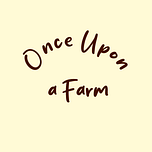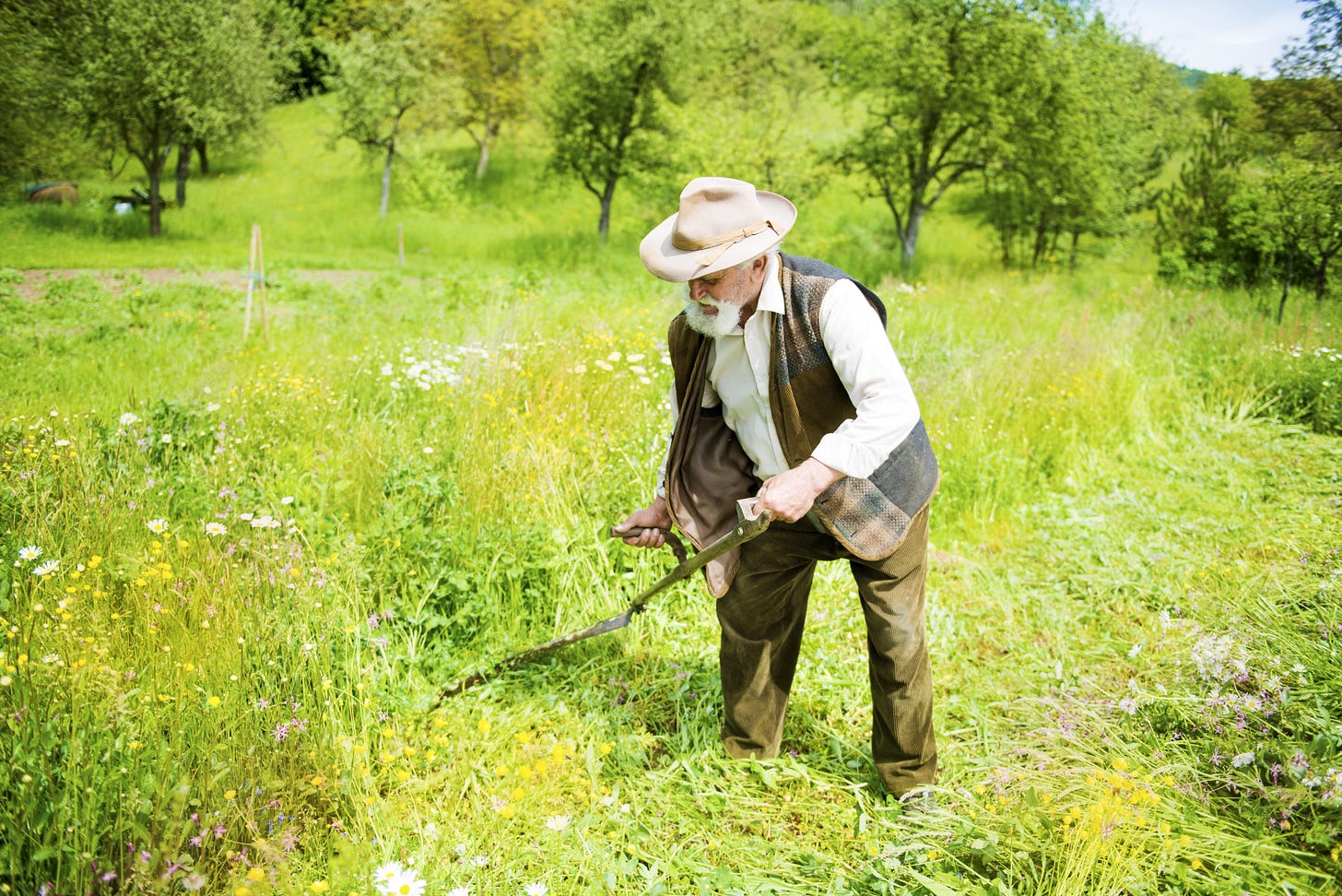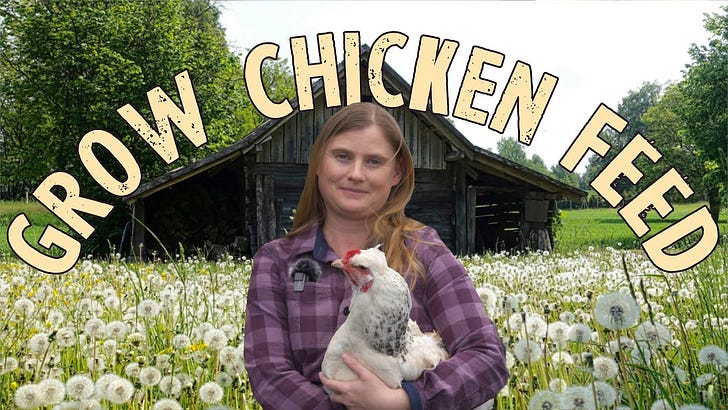I’m trying something a bit different today. I’m making a post that you can choose to listen to, watch the video, or read the transcript, depending on your preferences. I personally always like to read stuff, but I also love me some podcasts and the occasional video. I may or may not repeat this format in future. The substack app now has a ‘media’ tab so I figured, why not try it. I don’t know how thrilled I am about that tab, because I come here to read, but I’d like to think that I’m not a gatekeeper of how other people like to enjoy their content!
I am working on some articles but I really want to get them right, so please bear with me and I’ll have some original substack writing up soon and not this repackaged nonsense ;). Article below the video.
The Video:
The Transcript:
What is the point of doing things for yourself and growing your own food and having chickens running around in your backyard or moving towards homesteading or whatever you think you might want to do? What is the point of doing all of that? Because it takes a lot of time. You have to invest in skills to learn how to do these things. It can cost money to get set up and get on your way sometimes a lot more than you think it's going to when you first set out. And in some instances, the people in your life, your friends and your family might just think you're crazy and have no idea why you want to do these things for yourself. So today we're going to talk about that ‘why’, why we like to do these things for ourselves and how that makes us feel better.
I'm sure there are as many reasons as to why people want to do things for themselves as there are people doing it. So I will talk about the reasons why I like to do all of this gardening, chicken, baking, cooking, preserving stuff for myself. And for me, the main reason is hope for the future. Living a life where every day you are doing things, thinking things in a way that makes you feel like you have hope that there will be a future. Because we're living in some pretty crazy times where people are quite fractured and separate from each other and there's lots of conflict. And sometimes it just all feels quite hopeless. When you go out to the garden and you plant a seed, you are planting the belief, the hope, that that seed is going to grow and turn into a plant that you can eat and turn into food for your family. You're planting an understanding that in the future, this plant is going to turn into something amazing, coming from that tiny little seed that you put into the ground. You're having faith in a better tomorrow, every seed that you plant. So for me, that is the main reason that I like to do all of this stuff, because it keeps me focused on faith and hope and love for society, for my family, that we can get somewhere that's worth going.
On a more practical note, not just all this philosophy kind of thing, being able to do things for yourself, being able to bake bread or cook things from scratch, being able to grow things out in your garden, having your own flock of chickens in the backyard giving you eggs, gives you a lot more control and power around choices that you can make in your own individual life. So if prices start to go crazy at the supermarket, as they've been doing all over the place for the last few years, you can make different choices. You are not stuck just having to buy the same things you have been buying. You've got the choice to say, hey, bread is getting really expensive. I can bake it from flour instead. And that is way cheaper, cents on the dollar, than buying it. And you can buy higher quality ingredients and still come out lower than buying the packaged food at the supermarket. If you have chickens in your backyard, you've got eggs, even if the supermarket doesn't have eggs or if the cost of those eggs is going through the roof. You start to have choices in how you can manage your budget and your time that other people don't have if they don't have the skills to do some of these things for themselves.
For me, food is alive. It comes from the living world. And hopefully it's not alive when you're actually eating it! But until that point, food is alive. It is a living thing, part of a living system. Whether that is meat that we're eating or whether that is plant foods that we're eating, those things were alive before we ate them. And from that perspective, I believe that life should be treated with respect and dignity. Doesn't matter if that's plant life or animal life or people life. All life deserves to be able to live the life it has to its best potential. And I do not feel that the industrial food system that we have today respects life in any way. It is all machine based. It's planted with machines. It's harvested by machines. It is processed by factory machines. There are people in all of these processes, but those people are there to serve the machines. They are not there to tend the land and look and connect and love the life that they are working with. They are there to make the machines run from the start to the finish. And that is a machine. It's dead. It is not a perspective that I want to have when I am feeding my family with food, which is a gift, a living gift that keeps life going on. Life gives itself to more life. Machines do not give themselves to life. They are already dead. That's a little bit of philosophy, but it really does make a big difference to how I view all of this stuff that I'm doing because it does take a lot of time and effort and skill building. It absolutely does. But it brings life and love back into every moment that I am dealing with food for my family.
I'll tell you a little story about growing tomatoes to sort of illustrate my point about the difference between people connected with life making food and machines making food. So I grow tomatoes every year and I love them and my family eats lots of them. I have my tomato seedlings. I plant the seed. I watch that seed come up under the lights inside and it's all very exciting. And I'm caring for that little seedling. I'm taking that little seedling and I'm putting it into a bigger pot and I'm caring for that seedling until it's big enough to go out into the garden. Then I am planting it and this is all with my own two hands and I've already spent maybe a couple of hours at this already. I'm planting it into the garden and then I am caring for that plant in the garden. I am looking at it. I am watering it. I'm seeing if it's okay and then it's going to grow. It's going to make beautiful tomatoes. I'm going to harvest those tomatoes. Then either we're going to eat them, that beautiful living thing that I've just plucked off the vine hours before we're going to eat it or moments before we're going to eat it. Or I'm going to put some more time in and I'm going to preserve that tomato into salsa or pasta sauce or something like that, which I can put away and bring out to enjoy when we don't have tomatoes out in the garden anymore. And that whole process has had my attention and my care from that tiny little seed through to the product that we're going to eat. It's all been made with my care and attention and love. And it's ridiculously inefficient.
This is something that you could go to the supermarket and buy for four or five dollars. I mean, it wouldn’t be anywhere close to the same thing, but it still on the surface is a jar of salsa, or tomato sauce.
I've spent hours on that, on that tomato, on the plants, on the harvesting and preserving. Super inefficient. But human inefficiency is what makes us actually human. We are not machines. You cannot just make everything a one, two, three, four process. We need to look and touch and see and love what we are doing. And that is what I'm doing when I am taking that tomato from seed to table to plate. And that has a lot of meaning to me when I open that jar up in the middle of winter and feed my family with something that I have been spending months on. And it's a great reminder of why I'm doing this in the first place.
It's exactly the same story with the chickens in my backyard. Each of these chickens, I know them personally. They've hatched out here. They've been raised up by a hen that I know. And I've known everything about each one of my chickens. And when they lay eggs for me, that is a relationship that we have. And that is a really nice thing and it feels really good. If I go to the supermarket to buy eggs or even if I'm buying eggs from just someone whose chickens I don't know, then we don't have that relationship. There is not sort of a life in that relationship. So that's just something that is important to me. And it's how I like to provide as much food as I can for my family in relationship with living things on our earth. We're supposed to do this because we are also living things who are called to be enmeshed in this world, this earth that we all live on.
I do not grow all the food that we eat here. That would be a huge undertaking. And I don't have enough space to do that. But I grow what I can and I grow the things that are the most important to us. And I am not saying we all have to go out and each individual family grow all our own food. That would just be almost impossible to achieve. But I am saying that it's really important to remember that we are humans, not machines. That there is beauty in the inefficiency of doing things ourselves. There is empowerment and hope and faith in going out and learning how to do something for yourself. That can be as simple, it's not that simple, but as simple sounding as learning how to make your own food from scratch, from ingredients that you are buying. It's still a very empowering thing to do. And that might be growing things in your garden or having chickens or whatever it looks like for you and the time and the skills and the energy that you have to put into this. But do something. That is the pathway forward to helping us approach this beautiful world that we live in from a more human place with all the other living things that share the planet with us.







